Monday Memo: Unmet Needs?
By Holland Cooke
Consultant
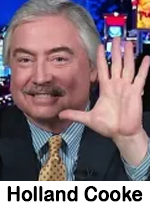 Last week’s column previewed “CeaseFire,” C-SPAN’s antidote to the caricature cable news shouting match. Thanks to all who offered feedback when we wondered “WHAT IF…?” for talk radio.
Last week’s column previewed “CeaseFire,” C-SPAN’s antidote to the caricature cable news shouting match. Thanks to all who offered feedback when we wondered “WHAT IF…?” for talk radio.
Recent report from Reuters Institute for the Study of Journalism: People are disabling news alerts, “either because they feel they get too many or because they are not useful.”
People are anxious. Even a robot can read-the-room, as I learned by asking ChatGPT: “In USA society generally, list unmet needs.” Among them:
Belonging Without Division
— People crave community but are tired of being forced to choose sides.
— Unmet need: A way to feel connected and purposeful without being tribalized by politics, race, class, or ideology.
Trusted, Nuanced Information
— There’s information overload, but trust is at an all-time low.
— Unmet need: Sources that feel both credible and fair-minded, without sensationalism, bias, or agenda-chasing.
Civility in Public Discourse
— Public conversation often feels like a battleground.
— Unmet need: Spaces — digital or real-world — where disagreement is safe, not destructive or humiliating.
Mental & Emotional Support
— Rising anxiety, loneliness, and burnout affect people across all ages.
— Unmet need: Accessible, non-stigmatized mental health support, including community-based emotional infrastructure (not just therapy apps).
Work That Feels Worthwhile
— Many jobs pay the bills but feel meaningless.
— Unmet need: Opportunities to do work that’s valued, not just productive — where dignity and contribution matter as much as output.
Financial Security That Isn’t Fragile
— Even middle-class households feel one emergency away from disaster.
— Unmet need: Stability and predictability — not just income, but housing, healthcare, and retirement that won’t evaporate with one bad break.
Intergenerational Connection
— Older and younger generations increasingly live in separate realities.
— Unmet need: Meaningful contact across age lines, where wisdom flows both directions — not just tech tutoring and nursing homes.
Shared Purpose
— Many feel like they’re drifting — or living someone else’s script.
— Unmet need: A sense of contribution to something bigger than self, not through ideology but through everyday roles, responsibilities, and relationships.
Consider as you pose call-in topics and choose interview guests.
Holland Cooke (HollandCooke.com) is a media consultant working at the intersection of broadcasting and the Internet. Follow HC on Twitter @HollandCooke






 Imagine SiriusXM acquires the complete Howard Stern archive – every show, interview, and on-air moment. Months later, it debuts “Howard Stern: The AI Sessions,” a series of new segments created with artificial intelligence trained on that archive. The programming is labeled AI-generated, yet the voice, timing, and style sound like Stern himself.
Imagine SiriusXM acquires the complete Howard Stern archive – every show, interview, and on-air moment. Months later, it debuts “Howard Stern: The AI Sessions,” a series of new segments created with artificial intelligence trained on that archive. The programming is labeled AI-generated, yet the voice, timing, and style sound like Stern himself. newsprint tabloid, TALKERS proclaimed that “talk radio” was, indeed, an “industry within an industry” and worthy of its own, unique full-service trade publication. Founded by pioneering radio broadcaster (KMET, WNEW-FM, WLIR-FM, WCBS-FM, WPIX, KPRI, CBS, Westwood One, RKO) Michael Harrison, who also brought his experience with publications including Radio & Records, Goodphone Weekly, and Billboard to the table, the independent journal went on to produce annual conferences, numerous radio shows, and contribute to the ongoing success and influence of a variety of spoken word formats and talk media offshoots.
newsprint tabloid, TALKERS proclaimed that “talk radio” was, indeed, an “industry within an industry” and worthy of its own, unique full-service trade publication. Founded by pioneering radio broadcaster (KMET, WNEW-FM, WLIR-FM, WCBS-FM, WPIX, KPRI, CBS, Westwood One, RKO) Michael Harrison, who also brought his experience with publications including Radio & Records, Goodphone Weekly, and Billboard to the table, the independent journal went on to produce annual conferences, numerous radio shows, and contribute to the ongoing success and influence of a variety of spoken word formats and talk media offshoots.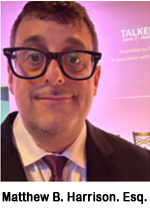 In early 2024, voters in New Hampshire got strange robocalls. The voice sounded just like President Joe Biden, telling people not to vote in the primary. But it wasn’t him. It was an AI clone of his voice – sent out to confuse voters.
In early 2024, voters in New Hampshire got strange robocalls. The voice sounded just like President Joe Biden, telling people not to vote in the primary. But it wasn’t him. It was an AI clone of his voice – sent out to confuse voters.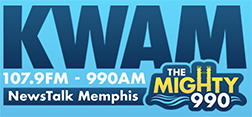 after four years to take a job on Capitol Hill in Washington. The ideal candidate must have at least three years of talk radio experience with a strong background in politics and news. This position is based in Memphis. Send resume and air check to
after four years to take a job on Capitol Hill in Washington. The ideal candidate must have at least three years of talk radio experience with a strong background in politics and news. This position is based in Memphis. Send resume and air check to 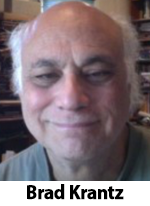 Krantz was most recently co-host of “The BradandBrittcast” podcast with Britt Whitmire. He served as host at a number of rock stations during his long radio career as well as morning host on news/talk WBT-AM/FM, Charlotte.
Krantz was most recently co-host of “The BradandBrittcast” podcast with Britt Whitmire. He served as host at a number of rock stations during his long radio career as well as morning host on news/talk WBT-AM/FM, Charlotte. 
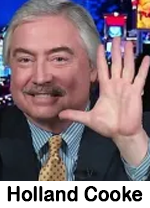 There has never been more news. And news has never been more quotable. It costs two-plus cents to make a penny.
There has never been more news. And news has never been more quotable. It costs two-plus cents to make a penny. Jim Gearhart is a remarkable on-air talent who was the AM drive host on New Jerey 101.5 for 20-plus years. In the 1960’s he was a star on WCBS-AM and WNEW. The illustration is an ad for his 2:00 pm to 4:00 pm show on WNBC circa 1968.
Jim Gearhart is a remarkable on-air talent who was the AM drive host on New Jerey 101.5 for 20-plus years. In the 1960’s he was a star on WCBS-AM and WNEW. The illustration is an ad for his 2:00 pm to 4:00 pm show on WNBC circa 1968.
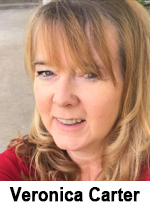 Broadcasting weekdays 5:00 am to 9:00 am PT, the show delivers what station sources describe as “unmatched news coverage of the critical stories shaping the community.”
Broadcasting weekdays 5:00 am to 9:00 am PT, the show delivers what station sources describe as “unmatched news coverage of the critical stories shaping the community.” 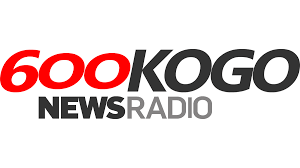 The program has a reputation for being a trusted news source dedicated to delivering timely and accurate coverage tackling everything from local and national news to business, entertainment headlines plus traffic and weather reports. Known for her warm delivery and engaging storytelling, Carter’s distinguished career includes roles at major news outlets such as WBBM in Chicago and Newsradio KFBK in Sacramento, where she became known for her sharp reporting and ability to connect with audiences. She will report to PD Mary Ayala who tells TALKERS, “I’m thrilled to welcome Veronica to our team,” adding, “Her depth of experience, vibrant enthusiasm and passion for connecting with the people of California make her a great addition to our morning show.” Carter comments, “I’m honored to join such a respected team and excited to connect with our listeners each morning, bringing them the news and stories that matter most.” Carter replaces LaDona Harvey, who announced she was stepping down from the role earlier this month.
The program has a reputation for being a trusted news source dedicated to delivering timely and accurate coverage tackling everything from local and national news to business, entertainment headlines plus traffic and weather reports. Known for her warm delivery and engaging storytelling, Carter’s distinguished career includes roles at major news outlets such as WBBM in Chicago and Newsradio KFBK in Sacramento, where she became known for her sharp reporting and ability to connect with audiences. She will report to PD Mary Ayala who tells TALKERS, “I’m thrilled to welcome Veronica to our team,” adding, “Her depth of experience, vibrant enthusiasm and passion for connecting with the people of California make her a great addition to our morning show.” Carter comments, “I’m honored to join such a respected team and excited to connect with our listeners each morning, bringing them the news and stories that matter most.” Carter replaces LaDona Harvey, who announced she was stepping down from the role earlier this month. The podcast publishing arm of iHeartMedia and Radio Ambulante Studios (RAS), a pioneering Spanish-language podcast production company that tells the stories of Latin America and Latino communities around the world, announced a deal that will bring RAS and its full slate of shows to iHeart’s My Cultura Podcast Network. As part of the deal, Radio Ambulante Studios’ flagship, award-winning podcast “
The podcast publishing arm of iHeartMedia and Radio Ambulante Studios (RAS), a pioneering Spanish-language podcast production company that tells the stories of Latin America and Latino communities around the world, announced a deal that will bring RAS and its full slate of shows to iHeart’s My Cultura Podcast Network. As part of the deal, Radio Ambulante Studios’ flagship, award-winning podcast “ X – which most people I hear still call “Twitter” – is a great way to attract new ears.
X – which most people I hear still call “Twitter” – is a great way to attract new ears.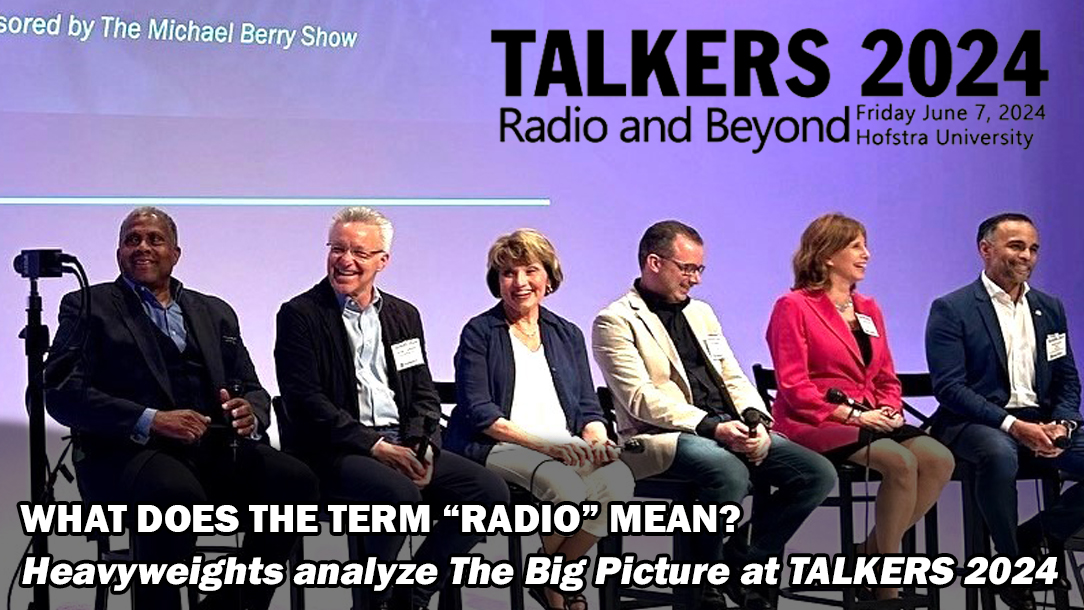
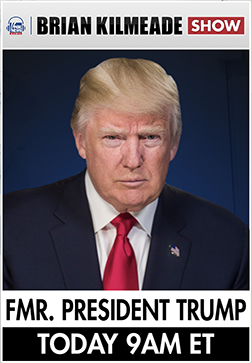 hour appearance, Trump did not bring up the matter of Joe Biden’s health but stated that he didn’t care whether Biden stays in the race as the Democratic nominee or not, believing that he has the voter support to beat any Democrat because they all share the same “radical lunatic” policies. He also told Kilmeade that he plans to announce his vice-presidential candidate pick just before next week’s Republican National Convention in Milwaukee. When asked if the pick would be influenced by whether or not Biden drops out of the race, Trump responded, “No” adding, VP Kamala Harris is “a disaster.” Kilmeade pressed the former president on a number of issues including NATO, immigration, and the economy. Trump stated that his good relationship with Putin is “a good thing” because it’ll keep us out of the growing danger of World War III and the only reason NATO members are now willing to pay their fair share of costs is because they feel threatened by the increased danger of war that has been heightened by the policies of Biden.
hour appearance, Trump did not bring up the matter of Joe Biden’s health but stated that he didn’t care whether Biden stays in the race as the Democratic nominee or not, believing that he has the voter support to beat any Democrat because they all share the same “radical lunatic” policies. He also told Kilmeade that he plans to announce his vice-presidential candidate pick just before next week’s Republican National Convention in Milwaukee. When asked if the pick would be influenced by whether or not Biden drops out of the race, Trump responded, “No” adding, VP Kamala Harris is “a disaster.” Kilmeade pressed the former president on a number of issues including NATO, immigration, and the economy. Trump stated that his good relationship with Putin is “a good thing” because it’ll keep us out of the growing danger of World War III and the only reason NATO members are now willing to pay their fair share of costs is because they feel threatened by the increased danger of war that has been heightened by the policies of Biden. 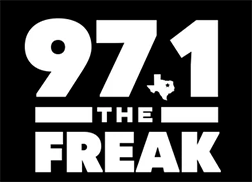 station after retiring from Cumulus Media’s crosstown sports talker KTCK-AM/FM “The Ticket” tells the Observer that he and castmates Julie Dobbs and Jeff Cavanaugh were let go on Friday (4/26). Rhyner says, “I could be standing at the New Mexico border and still see this coming. It’s a feeling that I and plenty of others at the station had been getting for some time now. iHeartRadio is a music company that really doesn’t do that much talk radio, and the talk radio they do is not local or locally originated, and they got caught into something [97.1 The Freak] they didn’t know anything about, and they were kind of overwhelmed by it, and they decided that ‘this is not our bag.’” Whitt’s Athlon story noted that “lagging ratings” and the talent expense [high overhead] had the station in corporate’s fiscal sights.
station after retiring from Cumulus Media’s crosstown sports talker KTCK-AM/FM “The Ticket” tells the Observer that he and castmates Julie Dobbs and Jeff Cavanaugh were let go on Friday (4/26). Rhyner says, “I could be standing at the New Mexico border and still see this coming. It’s a feeling that I and plenty of others at the station had been getting for some time now. iHeartRadio is a music company that really doesn’t do that much talk radio, and the talk radio they do is not local or locally originated, and they got caught into something [97.1 The Freak] they didn’t know anything about, and they were kind of overwhelmed by it, and they decided that ‘this is not our bag.’” Whitt’s Athlon story noted that “lagging ratings” and the talent expense [high overhead] had the station in corporate’s fiscal sights. 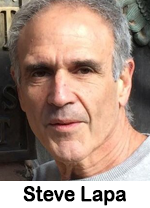 Time to thank the lawyers in the Donald Trump trial for once again proving beyond any doubt the power of talk radio.
Time to thank the lawyers in the Donald Trump trial for once again proving beyond any doubt the power of talk radio.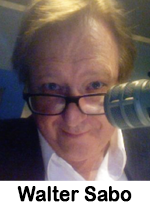 It seems every hour Nielsen and Pierre Bouvard of Cumulus fame (formerly of Westwood One) put out a release stating that radio is just fine, thank you. Radio is more persuasive than TV, direct mail, streaming and print. Radio is a proven success for over 100 years. Most of the buildings housing Procter & Gamble were built on radio – not TV – advertising success. Happily, P&G realized radio’s clout and is now a dominant radio advertiser – again!
It seems every hour Nielsen and Pierre Bouvard of Cumulus fame (formerly of Westwood One) put out a release stating that radio is just fine, thank you. Radio is more persuasive than TV, direct mail, streaming and print. Radio is a proven success for over 100 years. Most of the buildings housing Procter & Gamble were built on radio – not TV – advertising success. Happily, P&G realized radio’s clout and is now a dominant radio advertiser – again!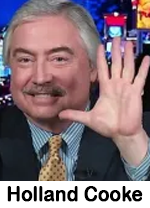 For spring break this year, Sarah and I revisited Sandals Grand Bahamian all-inclusive resort – NOT inexpensive, and very worth it. We’ve already booked same-week-next-year, and we think we know who we’ll see there then.
For spring break this year, Sarah and I revisited Sandals Grand Bahamian all-inclusive resort – NOT inexpensive, and very worth it. We’ve already booked same-week-next-year, and we think we know who we’ll see there then.

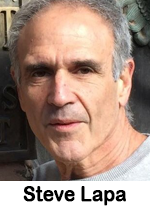 Have we passed the disappointment of 2023?
Have we passed the disappointment of 2023?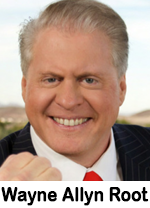 candidate Nikki Haley come in behind “None of the Above Candidates.” (“None of the Above Candidates” is choice that has been on Nevada ballots since 1975.) Root tells TALKERS that he came up with the strategy of convincing his audience to vote “None of the Above” to support Donald Trump and claims, “This is Exhibit A for the power of talk radio. Look at the vote totals. The number of ‘None of the Above’ voters almost exactly matches the number of listeners to my Vegas and statewide Nevada radio show. We did this. My Nevada audience almost single-handedly ended Nikki’s presidential ambitions.”
candidate Nikki Haley come in behind “None of the Above Candidates.” (“None of the Above Candidates” is choice that has been on Nevada ballots since 1975.) Root tells TALKERS that he came up with the strategy of convincing his audience to vote “None of the Above” to support Donald Trump and claims, “This is Exhibit A for the power of talk radio. Look at the vote totals. The number of ‘None of the Above’ voters almost exactly matches the number of listeners to my Vegas and statewide Nevada radio show. We did this. My Nevada audience almost single-handedly ended Nikki’s presidential ambitions.”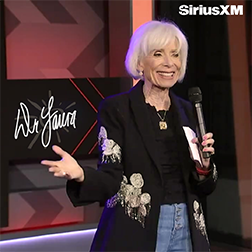 follows a multi-year advertising sales and production partnership between the two organizations. Terms were not announced. Crossover Media Group managing member Sue Freund states, “Throughout her more than four decades in talk radio and now podcasting, Dr. Laura has amassed an enormous following with her frank, direct, captivating style, which is sometimes provocative, always interesting and insightful, and never dull. After many years of working with her and her team at Take On The Day, we’re proud to expand our relationship and commitment to her programs, and to continue to grow our presence as a leading partner to the nation’s top audio-talk hosts.” Take On The Day LLC president Geoff Rich comments, “Crossover Media Group’s investment in Take On The Day adds so much to our ability to reach more listeners and help more sponsors. With Sue and her partners Ron Hartenbaum and Scott Calka joining the management team, we are supercharging the future of the Dr. Laura programming and brand.”
follows a multi-year advertising sales and production partnership between the two organizations. Terms were not announced. Crossover Media Group managing member Sue Freund states, “Throughout her more than four decades in talk radio and now podcasting, Dr. Laura has amassed an enormous following with her frank, direct, captivating style, which is sometimes provocative, always interesting and insightful, and never dull. After many years of working with her and her team at Take On The Day, we’re proud to expand our relationship and commitment to her programs, and to continue to grow our presence as a leading partner to the nation’s top audio-talk hosts.” Take On The Day LLC president Geoff Rich comments, “Crossover Media Group’s investment in Take On The Day adds so much to our ability to reach more listeners and help more sponsors. With Sue and her partners Ron Hartenbaum and Scott Calka joining the management team, we are supercharging the future of the Dr. Laura programming and brand.” radio pros Chris Merrill and Joe Huizenga. Bonneville Phoenix SVP and market manager Ryan Hatch says, “We are thrilled to add new shows that will keep our community informed and connected at such an important time. In addition to being one of the most dynamic and fastest growing cities in the country, Phoenix is also the epicenter of the 2024 election with Arizona being a key battleground state.” St. James served with KTAR-FM from 2010-2020. Merrill hosted a local show on the station from 2014-2017. Huizenga is currently the assistant program director and is a familiar voice as a fill-in host. Station PD Martha Maurer adds, “I am excited to welcome back Bruce and introduce Chris and Joe to our already impressive news and talk teams. This new lineup will bring exciting new energy and depth to our live and local coverage, both on-air and on our growing digital platforms.”
radio pros Chris Merrill and Joe Huizenga. Bonneville Phoenix SVP and market manager Ryan Hatch says, “We are thrilled to add new shows that will keep our community informed and connected at such an important time. In addition to being one of the most dynamic and fastest growing cities in the country, Phoenix is also the epicenter of the 2024 election with Arizona being a key battleground state.” St. James served with KTAR-FM from 2010-2020. Merrill hosted a local show on the station from 2014-2017. Huizenga is currently the assistant program director and is a familiar voice as a fill-in host. Station PD Martha Maurer adds, “I am excited to welcome back Bruce and introduce Chris and Joe to our already impressive news and talk teams. This new lineup will bring exciting new energy and depth to our live and local coverage, both on-air and on our growing digital platforms.” If you’ve been seeing CES coverage on network and cable newscasts this week, you’ve heard it called “the Consumer Electronics Show,” despite we-the-media being told not to. They want us to say “CES,” although, years ago, the Consumer Electronics Association changed its name to the Consumer Technology Association, not its first rebrand.
If you’ve been seeing CES coverage on network and cable newscasts this week, you’ve heard it called “the Consumer Electronics Show,” despite we-the-media being told not to. They want us to say “CES,” although, years ago, the Consumer Electronics Association changed its name to the Consumer Technology Association, not its first rebrand.